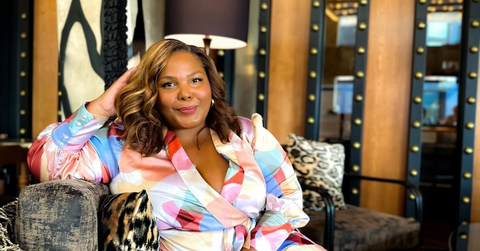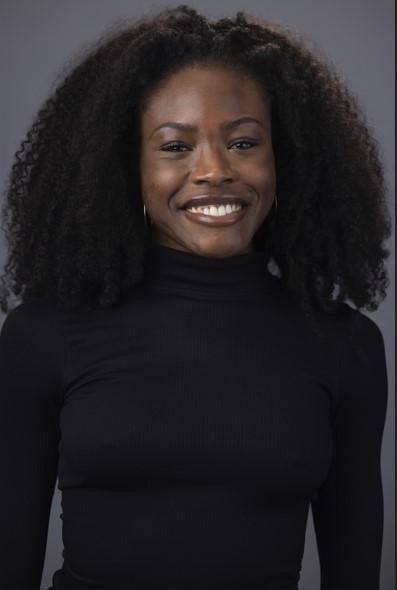Tiffany Hardin is the CEO and founder of Gild Creative Group, an influencer marketing agency that bridges brands with the world’s most influential voices. At the heart of Gild’s mission is a simple yet powerful idea: authentic connections drive impact.
Tiffany’s career began in the music business, where she honed her skills in talent management and marketing to create culturally relevant stories that build meaningful connections, driving trust, awareness, and impact. Her work with major brands like Hulu, Onyx, Microsoft, and Target reflects her ability to amplify creators and influencers while bringing brands closer to the audiences they serve.
Now, Tiffany is expanding her vision as she builds Represent, a creator services tech startup aimed at empowering talent and redefining opportunities in the creator economy. She’s also the driving force behind Conscious Hustler, a professional development curriculum and lifestyle brand that challenges traditional “hustle culture” by advocating for balance, intention, and purpose. Through her Conscious Hustler podcast, Tiffany shares insights and inspiration, creating space for those seeking sustainable success.
Her Agenda sat down with Tiffany to explore her journey in influencer marketing, the role emotional intelligence has played in her entrepreneurial path, and the legacy she hopes to leave for the next generation of creators and entrepreneurs.
Her Agenda: Can you define influencer marketing in your own words and explain its importance to the media industry?
Tiffany Hardin: The root of influencer marketing is connected to trust [in people] who have built an audience on [social] platforms that can support the spread of a product, service, or idea. I think there’s even a more basic version of that though, where everybody in their own right is an influencer. Everybody has been influenced by someone. In the advertising world, we consider influencers, [and] sometimes that’s interchangeable with creators, [to be] people who have large audiences and can share something that they are really interested in, whether that’s a product, a service, or an idea, and post that to their channels or share that message with their audiences. That creates a result. That result can be awareness, so that [the] audience now knows this person enjoys something and they’re willing to try it. In marketing, that’s called consideration. Someone creates an action and that creates a lead for that product or that idea through going to a website, putting your email in, doing some type of action.
Just like there are commercials on TV, there are commercials on social [media], and the people that you know, like, and trust are becoming commercials. It didn’t always used to be like that. We’re in that space now where there’s more opportunity for [diverse creators] to make money using and operationalizing their social and creative capital. [At the same time,] we’re also finding that there’s a pay gap between white creators and nonwhite creators. In terms of infrastructure, there’s not enough diversity in who gets to essentially win in this space.
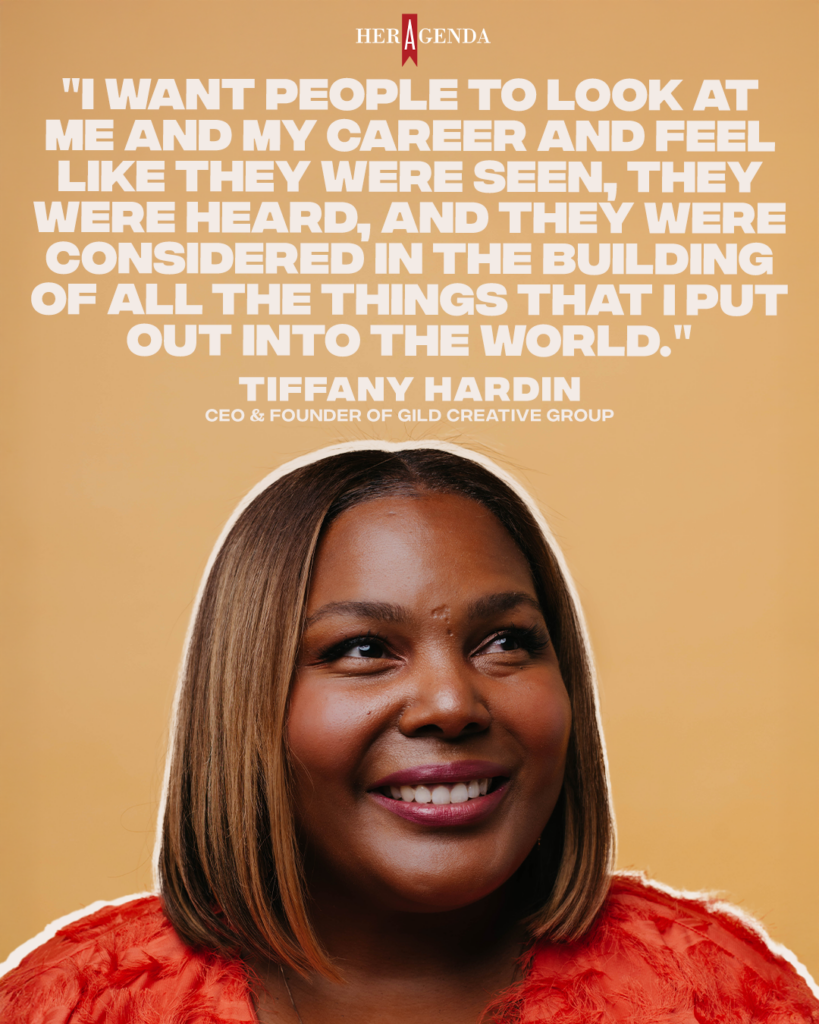
Her Agenda: Going back to your shift from working in corporate to now being an entrepreneur, when did you know the corporate world wasn’t for you? What made you want to break out and start your own agency?
Tiffany Hardin: I will be honest. I knew I was going to be an entrepreneur very early on, before work. Before I even knew what work was. It was something that my mother instilled in me as an opportunity. She was an entrepreneur. She was a self-taught software analyst and worked for major technology firms. Through her, I was able to understand that there are more opportunities. The thing I want to say about my mom is that she’s no longer with us. She passed unexpectedly in 2020. But she taught me that no matter what it is that you want to do, you can do it. I saw her, at that time, make her own business card, and create her own stationery. I saw her pitch her services, but I don’t think I had enough appreciation for it at the time because I was a kid. But, she really exposed me to possibility and vision.
I think the speed of entrepreneurship has always been in my spirit. I come from a long line of entrepreneurs, even through the reconstruction era and on. Because I was getting into a very niche field, I knew that I needed to learn from being an assistant. When I started my career, I started in talent management at Violator, which was run by Chris Lighty and Mona Scott Young, and I worked directly for her. I [worked] for Translation under Steve Stoute, and I started as his assistant before I moved into the strategy department. What was fascinating to me was that I’ve always worked for entrepreneurs as well. I always saw entrepreneurship, but I wasn’t ready to do it on my own. I knew that I had to learn.
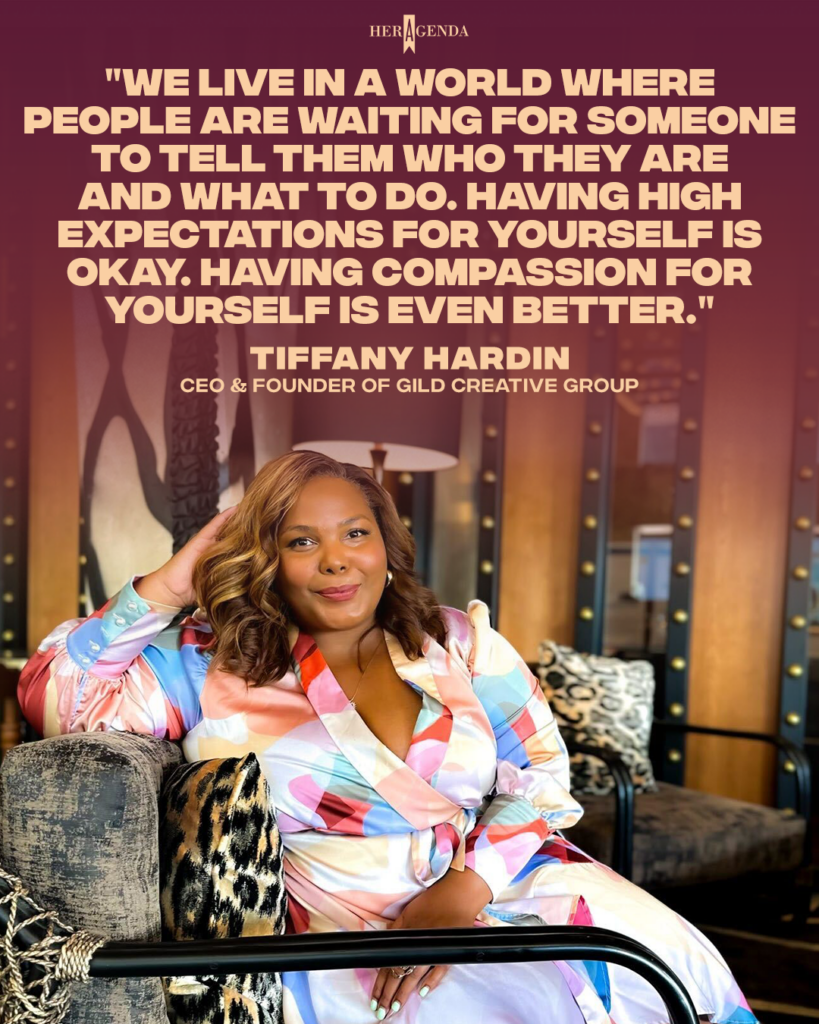
[When] I was working at the agency, the sort of cultural context at the time was that social [media] was just developing. The iPhone just came out. Even when the iPhone came out, we didn’t have all these apps yet, right? So then you have the advent of the App Store and people having access to Instagram and Twitter and things from their phones. And then I’m working in the social strategy department, doing what we now call influencer marketing. On the side [I was also] managing talent. At the time, it was both music talent and influencer talent, and we’re still trying to convince brands that influencer marketing is a thing. This is very early days of influencer marketing. Today, you could talk to a brand and say, ‘Hey, we think you should do a creator program or an influencer program.’ And they’re like, ‘Yeah, sure, of course.’ [Back] then, it was, ‘Oh, we don’t know.’
Social media is growing; people are starting to grow their audiences based on their cultural points of view, and brands are starting to pay attention. That is the petri dish that I had when deciding I was going to start my own company. If I could do it for this one agency, why can’t I do it everywhere? I don’t know who I thought I was.
There was a particular moment when my now mentor and then boss at the time, Marcus Collins, and I had a conversation in the middle of a review. He asked me this question that just stuck to my bones and he was like, ‘Tiffany, why aren’t you doing what you want to do?’ That threw me for a loop because I thought I was hiding my contempt for that space at a time when I just wanted to do my job and keep it moving. But the reality was that I had a higher ambition and the ambition that I had, there wasn’t space for it to grow there because the agency wasn’t ready.
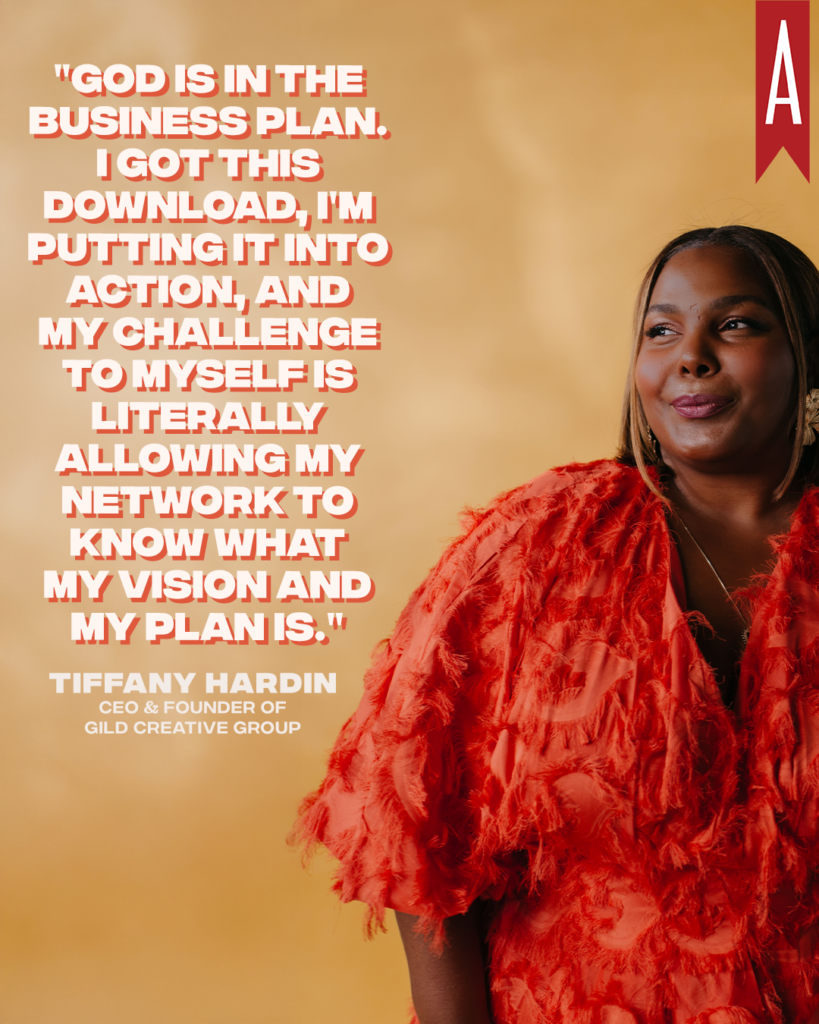
Her Agenda: Having Gild Creative Group under your sleeve, the podcast Conscious Hustlers, and being a leader and entrepreneur in different communities and building community, how have you used your emotional intelligence to keep yourself balanced and afloat while tackling different endeavors?
Tiffany Hardin: I think emotional intelligence is operating in its highest form when you’re doing it with yourself. A lot of people can intellectualize emotion, but when it comes to themselves, they’re slamming doors and stomping their feet. So for me, I allow myself to let it be, whatever the thing is. If I’m feeling an emotion, whether it’s my self-critic, [or] I didn’t like the way something was delivered, I remember everybody’s human, myself included, and I allow myself to let the emotion pass as much as possible and to find the clarifying lesson. I’m good to tell myself, it’s okay to not respond. It’s so easy to find the critic, find the compassion. That’s the thing for me that took work. So, I try to use my emotional intelligence to not only help me manage myself and people but also to find compassion.
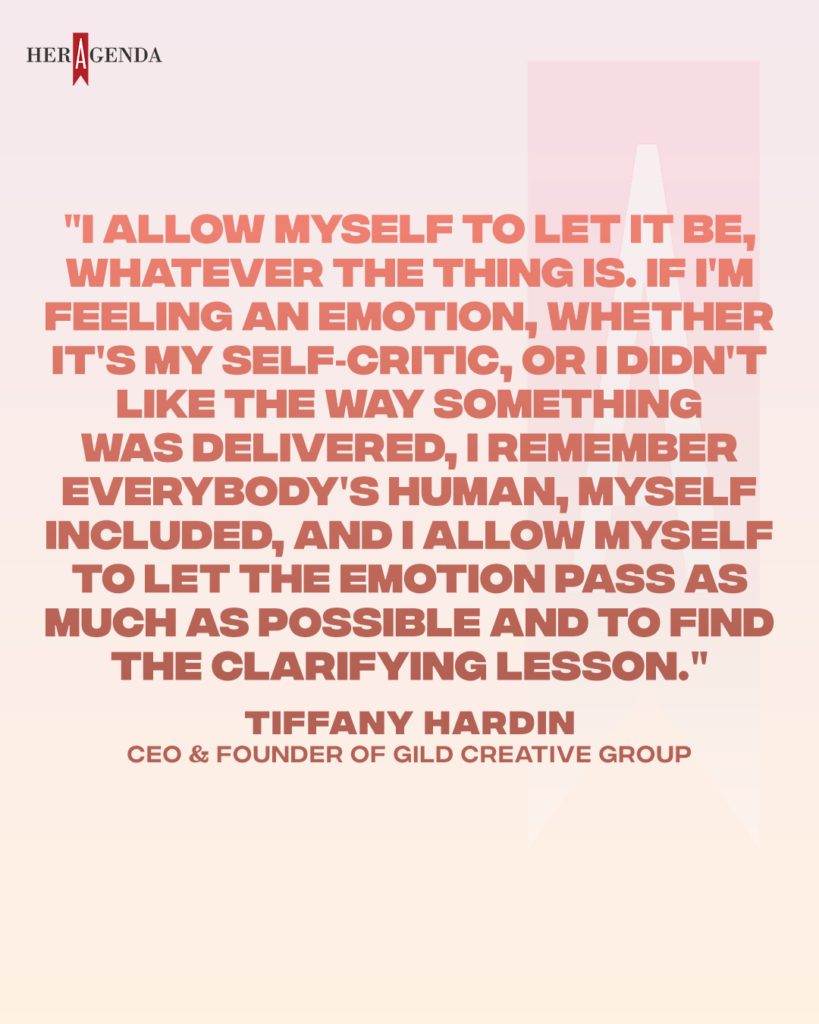
Her Agenda: The creator services startup that you’re getting ready to bring to the world, Represent, what gaps do you believe [it] will help fill in the creative industry?
Tiffany Hardin: I’m really excited about the startup because the people that are getting paid the real money [in the creator economy are] the ad tech firms, the social platforms, and advertising agencies. But, it’s centered on creators and 73 percent of creators are not represented. What happens when you’re not represented can equal a lack of operational support, inequitable deals, inefficient deal flow, and ultimately it’s stunted growth. Only 25 percent of creators are making at least $50,000. Of the 200 million creators that are active as creators, only 66 percent of them are doing it part-time. Most creators are women, and those creators are happy with their work. A little less than half, 44 percent, say [that] the work that they do in creative marketing is supporting their life and their families at home. Representation is the difference between people growing their business beyond $50,000. But not everybody wants to give up 10 to 20 percent of their income to have representation. Not everybody needs representation. Sometimes, you just need a good CRM [customer relations management), and some automated emails.
Canva is to design, what Represent will be for the representation for creators. The manager in your pocket. Creators who are looking to grow their wealth, grow their skill set, and upskill their career are going to need to talk to some people. So, it’s an expert marketplace. It’s an opportunity to chat with talent support specialists. It’s an opportunity to get legal documents reviewed. It’s really a system by which they have access to a manager in their pocket through a subscription service. That is the thing that people are missing. There is not going to be a shortage of creators anytime soon. Creator marketing is going to continue to get bigger. It’s going to be a $500 billion business by 2027, and 97 percent of marketers use creators.
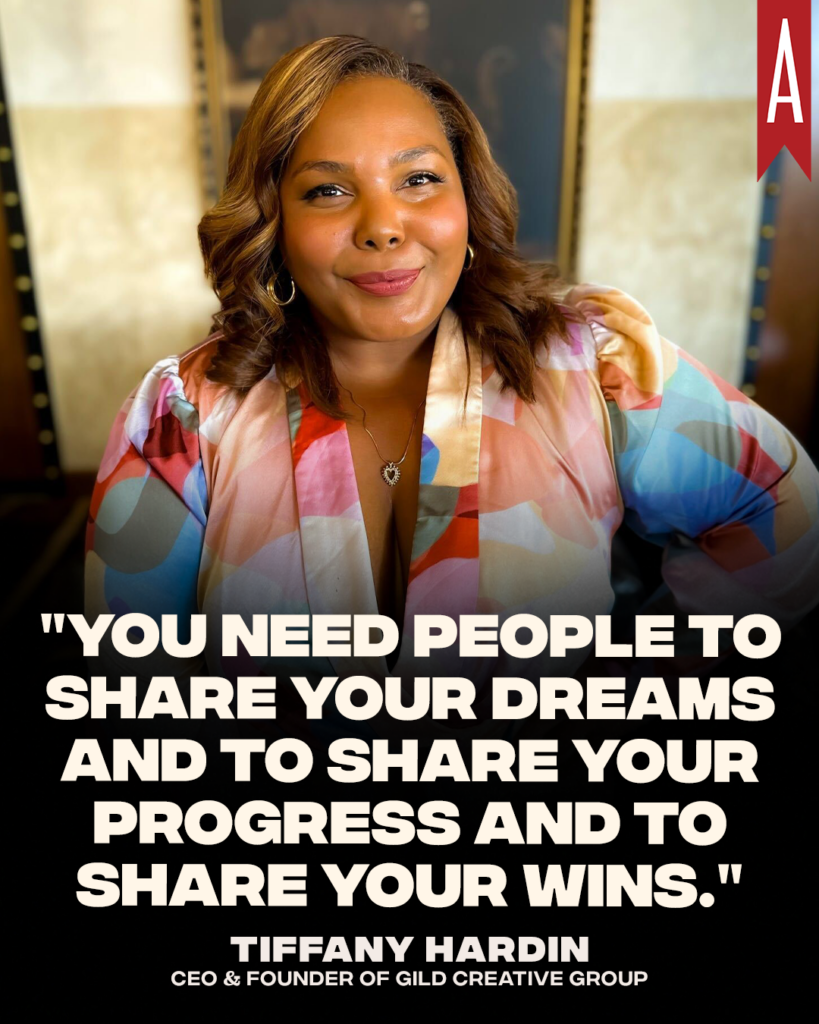
Her Agenda: What do you hope that the next generation of entrepreneurs, creatives, and talent in general learn from you and what you’ve been able to do for yourself?
Tiffany Hardin: I want my legacy to mean a few things. I want people, when they think of me, to think of just the idea of infinite possibility. I think we live in a world where people are waiting for someone to tell them who they are and what to do. Having high expectations for yourself is okay. Having compassion for yourself is even better. I want people to see my career and believe that whatever they want to achieve is possible. If they listen to my personal story, they’re gonna find a lot of the same feelings that we all have, which is self-doubt, scarcity, and all the feelings of the feelings wheel chart is all there. But like Beyoncé said, my fears aren’t going where I’m headed. I think about that line a lot. I want to create an impact that supports my industry and the people that make up the culture. I want them to have the opportunity to say [they were] able to build [their careers] because this product existed. Because I listened to that podcast and was inspired or recommitted to my purpose. I want people to be able to feel like who they are matters, no matter what they’re doing. It’s a hard question, but I feel like at the root of it, I want people to look at me and my career and feel like they were seen, they were heard, and they were considered in the building of all the things that I put out into the world.
Her Agenda: What is your motto?
Tiffany Hardin: It’s my family’s motto. Keep on keepin’ on. I have one more. If ‘keep on keepin’ on’ was the hustle part of it, the conscious part is (my mom would always say this) don’t let anyone steal your joy, not even me. Honestly, that’s where this comes from, you know? The joy in my heart comes from growing up with parents who had high expectations of me, but, they [also] had joy in their hearts. They operated from a generous place. It makes so much sense for me to be in this space and operate from this space because my intentions are true and real. And I’ve been, quite frankly, trained to produce this type of work with the right intentions and I can lead teams and lead people as a mindful leader.
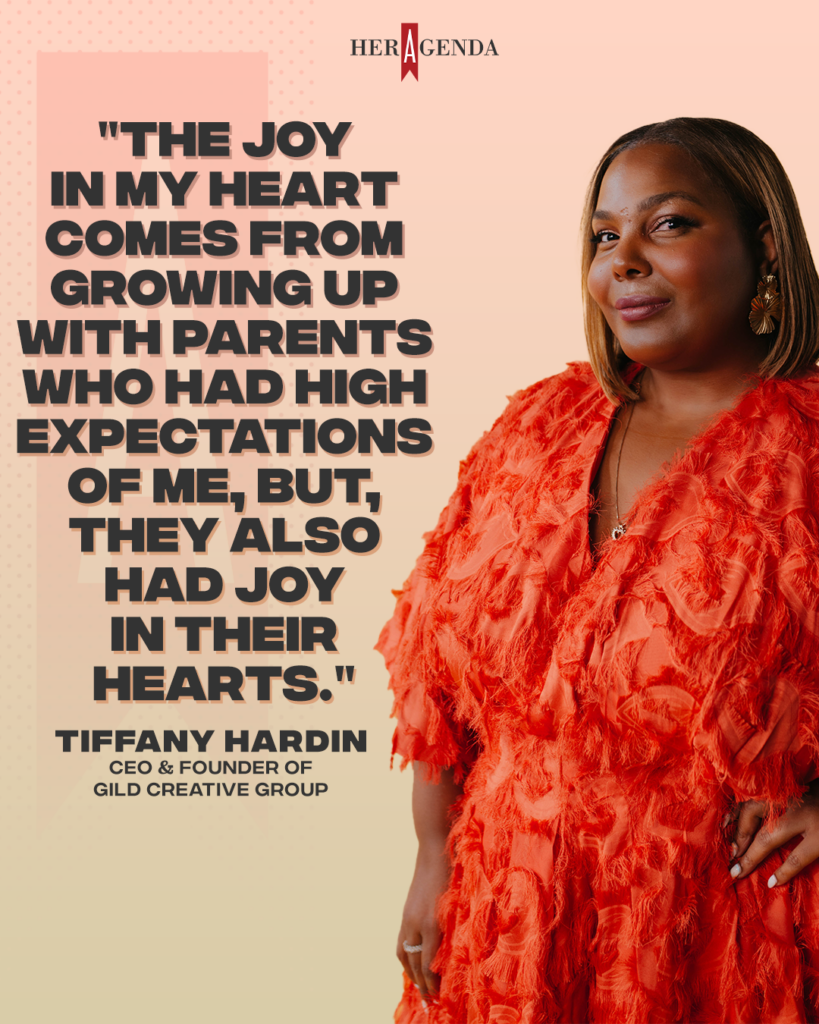
Her Agenda: Is there anything else that you want to share?
Tiffany Hardin: I also want to remind people, especially those of us who are hyper-independent creatives and founders, that you need people to share your dreams and to share your progress and to share your wins. I’m in a place in a space right now where I’m scared out [of] my mind. I’ve never started a startup. I’m building a tech platform [and] I haven’t done that before. My immediate circle hasn’t done that before. So, allowing myself to be scared and do it anyway because my fears aren’t going where I’m headed, shoutout to Beyoncé. I like to tell people God is in the business plan. I got this download, I’m putting it into action, and my challenge to myself is literally allowing my network to know what my vision and my plans are so that other things can be activated. Hiding behind our cool idea that’s not ready yet, no one cares. No one’s judging you. No one’s gonna be critical of you. Just start talking about your vision. Start talking about your idea, and every day, put a stake in the ground that gets you closer to that. When Represent comes out, that’s going to be the stake in the ground for creators.
[Editor’s note: This feature has been edited for length and clarity.]

